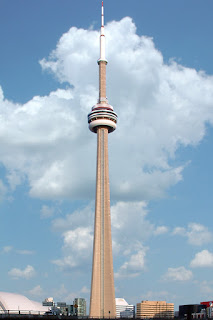Photography: Photographs available from this web site (NASA seawifs) are not protected by copyright unless noted and are in the public domain.
If not copyrighted, (THESE IMAGES) photographs may be reproduced and distributed without further permission from NASA. If the NASA material is to be used for commercial purposes, especially including advertisements, it must not explicitly or implicitly convey NASA's endorsement of commercial goods or services.
This general permission does not extend to use of the NASA insignia logo (the blue "meatball" insignia), the retired NASA logotype (the red "worm" logo) and the NASA seal. These images may not be used by persons who are not NASA employees or on products (including Web pages) that are not NASA sponsored.
Generally speaking, works created by U.S. Government employees are not eligible for copyright protection in the United States. See Circular 1 "COPYRIGHT BASICS" from the U.S. Copyright Office.
Giant squid From Wikipedia, the free encyclopedia
Giant squid, once believed to be mythical creatures, are squid of the Architeuthidae family, represented by as many as eight species of the genus Architeuthis. They are deep-ocean dwelling animals that can grow to a tremendous size: recent estimates put the maximum size at 13 m (43 ft) for females and 10 m (33 ft) for males from caudal fin to the tip of the two long tentacles (second only to the colossal squid at an estimated 14 m (46 ft), one of the largest living organisms). The mantle is only about 2 m (7 ft) long (more for females, less for males), and the length of the squid excluding its tentacles is about 5 m (16 ft). There have been claims reported of specimens of up to 20 m (66 ft), but no animals of such size have been scientifically documented.
On September 30, 2004, researchers from the National Science Museum of Japan and the Ogasawara Whale Watching Association took the first images of a live giant squid in its natural habitat.[1] Several of the 556 photographs were released a year later. The same team successfully filmed a live giant squid for the first time on December 4, 2006.
This article is licensed under the GNU Free Documentation License. It uses material from the Wikipedia article, Giant squid
Technorati tags: Public Domain Clip Art and clip art or public domain and Giant Squid or Architeuthis sp. and Presidential Podcast 09/29/07 and Halloween Pumpkins and Taxol bristle ball: a wrench in the works for cancer




















![United Nations Headquarters Building, Library of Congress, Prints and Photographs Division, Gottscho-Schleisner Collection [please cite the reproduction number, LC-G613-T-68977]](https://blogger.googleusercontent.com/img/b/R29vZ2xl/AVvXsEgl4EpHLJo3uaGKzR3WMGEaHOOdNhYFZjKg3bRzemxxipX76QL5PqF_nFJ6Ge2dal4wzlOsTP_jOxHXnfyU2JrGr3QI2NsrS0ie6ruCU0nBzDXgKA_MoAG59XIhqF4i8PlM_sD1/s320/united_nations_building_2.jpg)
![Empire State Building, Library of Congress, Prints and Photographs Division, Gottscho-Schleisner Collection [please cite the reproduction number, LC-G612-T01-21095]](https://blogger.googleusercontent.com/img/b/R29vZ2xl/AVvXsEhxlppJrn2-jq8aGClYjsrMKFj-pdRSee2I8quYfjDZbr5hBP81hnVyRPcVCBgCJGGEf6Tn6us3Jc2CqRfICyXsR3bNvL0Qdn1NScxpx16f-2cLRZ5B5qT6Kx53Xaz_vgzT0BIP/s320/empire_state_building_1.jpg)
![Empire State Building, Credit Line: Library of Congress, Prints & Photographs Division, [reproduction number, LC-USZ62-74620]](https://blogger.googleusercontent.com/img/b/R29vZ2xl/AVvXsEgWYEPO4GocJyoAWK92yxe6yw3ROX5SOVccTwtuESvlHnXWQmh3e1m6c6tE0-oUJMW2-9GAH749t_CBv3qexbkE1lP4iBXIRmSgZydeoc-XdAGaKCInCTz2i0hekDCb7gZyQ2rG/s320/empire_state_building_3.jpg)












![Stonehenge, Salisbury, England is a Neolithic and Bronze Age monument located near Amesbury in Wiltshire, England, about 8 miles (13 km) northwest of Salisbury, Credit Line: Library of Congress, Prints & Photographs Division, [reproduction number, LC-DIG-ppmsc-08828]](https://blogger.googleusercontent.com/img/b/R29vZ2xl/AVvXsEh9AQ0jaRBnR32GpnhGtA65onZl87udnBbfG8nSnUC6CMNVx0zh2qiuLYPSDDIZO7sYKVz8Nzhi636uus18Tx2u8IvO9pLNVF_xgPePHo6H_ps1yeE3-1hMa1IV1qC5QXDJpwZ6/s320/stonehenge.jpg)






